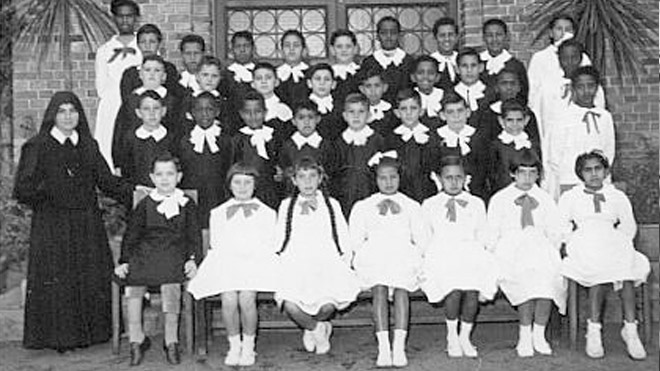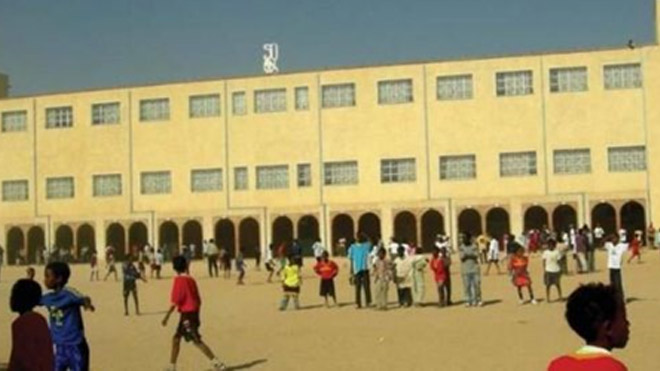Eritrea: The Eritrean Government Nationalises Private Schools

Source: BBC Tigrinya (መንግስቲ ኤርትራ ብሃይማኖታዊ ትካላት ንዝመሓደራ ኣብያት ትምህርቲ ሃጊሩ)
The Eritrean Government has issued a communique to bring schools run by the Catholic Church, Faith Mission, the Orthodox Church as well as schools run by Eritrean Muslims under its control.
The communique was quietly issued a few days ago without informing the public; this morning BBC has come to learn that seven secondary schools have been nationalised to date.
Those schools that have been nationalised are located in various towns around the country; they were well known and smoothly run by their constituent sponsors.

Some of the schools were set up durng the Italian colonial era; they have produced tens of thousands of competent young people during the last 70 years since they came into existence.
The Eritrean government claims the nationalisation of those schools is based on proclamation 73/1995. This proclamation, according to the government is issued "to legally standardize and articulate religious institutions and activities."
However, some of the schools were established long before the proclamation was issued. Abba Mussie, a Catholic clergy who pursues such matters closely, posed a question as to why this is happening now? He said the schools (also clinics) have been rendering crucial services to the communities; why disrupt their opertion in times of peace? Are there problems with the curriculum the schools are pursuing.

It is to be remembered last June (2019) the government confiscated all health clinics run by the Catholic Church. During that time the congress of the Bishops of the Catholic Church of Eritrea issued a statement: "our mission is tied up with the lives of the communities we serve and our church has never worked against the government."
This kind of nationalisation is no different than the one perpetrated in 1982 during the Derg era where the government of the time appropriated schools such as Comboni College, La Salle, Saint Ann.
The Catholic Church had requested the return of the schools that had been nationalised during the Derg rule.
“Let alone repossessing the schools that were nationalised long ago, the ones that we rebuild anew are being confiscated by the government” said a clergy whose name, for security reasons, BBC has agreed to withhold.
The government was heavily criticised after it misappropriated health centres that are owned by the Catholic Church.
It is to be remembered that Daniela Kravetz, the UN Special Rapporteur on the situation of human rights in Eritrea, did state that “the human rights situation in Eritrea has not improved yet.” But the Eritrean government contend the measures it took were well within its authority.
The government argued that religious institutions are not allowed to conduct development projects wherever they please; and that is due to the fact they marginalise those who do not adhere to that particular religion. That was a pretext; the statement is not correct for the centre provides assistance to all.



![[AIM] Asmarino Independent Media](/images/logo/ailogo.png)